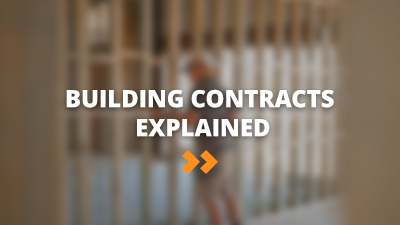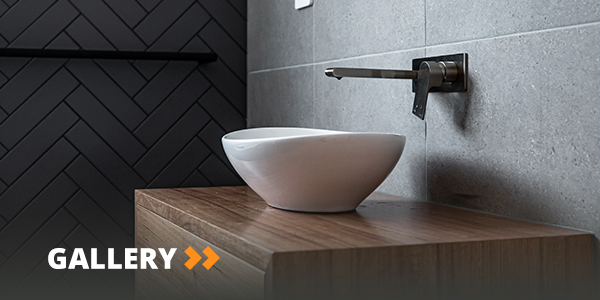
In this article we aim to share an understanding to different building contract terms that should assist you in understanding your building contract in a more comprehensive way.
Note: The comments stated below are indicative and not intended as legal advice. The terms and conditions of any particular contract may vary. It is recommended a licenced and qualified solicitor be engaged to review any contract for consideration before you sign.
Commencement
One of the more misunderstood terms
amongst new home buyers is “commencement”.
As a rule of thumb, commencement is defined as the time when the Builder
commences physical construction work on the site. It is not the time from when
a building contract is signed.
In many cases, the building contract will state that commencement will take
place within twenty (20) working days from the date that the:
The owner gives the evidence of his/her
title to the land where the building works will be carried out; and
The owner gives the builder possession of the site where the home will be
built; and
The builder receives all permissions, consents and approvals required from the
Local Authority; and
The owner gives the builder evidence of the owner’s capacity to pay the
building contract price to the builder’s absolute satisfaction including but
not limited to the establishment of a security account; and
The owner gives the builder a written notice from a lending body (where the
owner is borrowing funds) that construction of the building works may commence;
and
The owner, must to the builder’s absolute satisfaction: complete all colour
selection paperwork in full, including signing any and all variations in
accordance with the timeframes stated on any particular variation; and sign,
date and return construction plans within five (5) working days of receipt; and
sign, date and return any and all kitchen and electrical plans within five (5)
working days of receipt.
Possession
It is a standard requirement of building
contracts around Australia that before commencement of physical building work
can occur the owner must provide “possession” of the site to the builder.
In simple terms, possession means the builder has total control of the building
site.
As a result of having possession there
are several important factors that all owners need to be aware of:
The owner may only enter the site when approved to do so by the builder and
after a site safety induction has been carried out;
Building sites by their very nature contain hazards hence why access must be
controlled;
Owners who enter the site without authority are in breach of the terms of the
contract and may also breach the terms of the builder’s public liability
insurance;
Under no circumstances is the owner to give any directions to trade contractors
working in the site. The trade contractors are independent companies completing
contracts for the builder and do not have a contractual relationship with the
owner whatsoever; and
The owner must only communicate with the builder.
Prime Cost + Provisional Sums
Most new home building contracts include Prime Cost and Provisional Sum Allowances – so what do they mean?
Prime Cost or PC Items
These are fixtures and fittings that either have not been selected or can’t be
costed exactly at the time a contract has been entered into and therefore the
builder has made an allowance under the contract. PC items do not include the
labour for installation and do not include an amount for the builder’s margin.
Tapware and basins are good examples of PC items.
Provisional Sum or PS Allowances
Some contracts will include PS allowances which are items of work (including
labour and materials) which can’t be costed exactly at the time a contract is
entered into and so an allowance is made in the contract. Earthworks are
a good example of this on some sites where rock is identified in the
geotechnical report but it is not clear, until digging actually commences on
site, as to the extent of boulders that may exist under the ground.
How It Works
If the actual price of a PC or PS item is less than the allowance in the
contract then the difference is deducted from the contract price (ie the
contract price goes down). If the actual cost is more than the PC or PS item
then the contract price will increase. Payment is usually made at the next
progress payment or may be adjusted at the time of practical completion.
Naturally, of the actual price is the same as the PC or PS item then the
contract price remains the same.
Note of Warning
New home buyers should always be wary of building contracts that have a large
number of PC items. It is a common trick used by some builders to appear to be
offering great value for money by loading a building contract with a long list
of PC items. The allowances are usually low because the fixtures and fittings
they have allowed for are the cheapest products available and often there is no
option in the range to select an alternative product.
Note: The comments stated above are indicative and not intended as legal advice. The terms and conditions of any particular contract may vary. It is recommended a licenced and qualified solicitor be engaged to review any contract for consideration before you sign.
Variation
Once a residential new home building contract has been signed by all the parties, then changes can only occur by way of variation.
A variation must be in writing and
signed by the builder and the owner/s. There are pretty-much four sets of
circumstances when a variation may be raised:
When requested by the owner/s;
When requested by the builder;
A change required by the local authority or other statutory authority to ensure the building works comply with the law; and
Due to unforeseen circumstances, such as
hitting rock or finding asbestos on a site.
There is usually a time limit (i.e. five working days) for an owner to sign and
return an owner requested variation before it is deemed to be withdrawn and is
thus not incorporated into the contract.
Unless agreed otherwise agreed, a variation is due and payable at the next progress payment stage.
Variations usually include an extension of time to the building period and may include supplier restocking charges as well as an administration fee to cover time costs including cancelling existing orders, obtaining a quote for the replacement works/goods and then issuing new orders.
It is common practice among some builders to use a large number of Prime Cost (PC) items (this covers things such as door furniture, tapware, appliances) which are cheap. This is done in order to create a lower building contract price. When presented with these PC items many owners decide to change them. When this happens, a variation must be created and these replacement goods are nearly always more expensive than the PC allowance in the contract. As a general rule, you should be wary of sales estimates and contracts with a large number of PC items.



